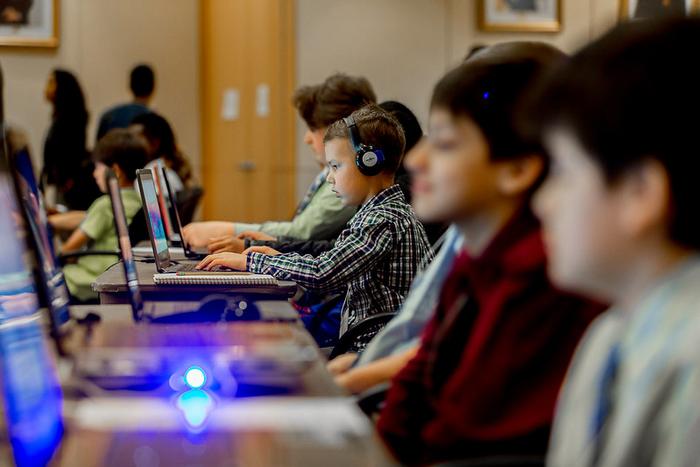In a world increasingly shaped by artificial intelligence and advanced technologies, the educational landscape faces unprecedented challenges. Traditional schooling methods often confine students to a rigid curriculum, leaving little room for personal exploration or the development of critical life skills. In light of these pressing issues, a significant study conducted by prominent researchers Yong Zhao from the University of Kansas and Ruojun Zhong from YEE Education sheds new light on this critical topic. Their groundbreaking research provides a fresh framework for rethinking student autonomy and educational practices in the era of AI, and was published on February 11, 2025, in the journal ECNU Review of Education.
As students navigate an educational system that heavily emphasizes standardized curricula, they frequently encounter limitations that stifle their individual learning journeys. The paramount concept introduced in their research is the "Time Available for Autonomy" (TAFA). This metric serves as an essential indicator of students’ engagement and control over their educational experiences. The researchers assert that a well-rounded education must include components that allow students to pursue their interests and develop intrinsic motivation. Without TAFA, the system fails to cater to the diverse needs of learners who thrive best in environments where they can explore and innovate.
Zhao and Zhong’s findings illustrate how an inflexible educational framework can hinder the cultivation of essential skills, such as creativity, critical thinking, and collaborative problem-solving. The authors call on educators and policymakers to prioritize student agency by making systemic adjustments to the traditional curriculum, assessment practices, and classroom environments. Through this innovative approach, they argue, it is possible to create a more adaptive learning system that resonates with the complexities of an AI-driven world.
The research identifies four pivotal aspects of education that are crucial in addressing these concerns: curriculum, pedagogy, assessment, and learning environment. By adopting a holistic view of education, the study urges stakeholders to reconsider how these elements interconnect and influence student learning. The interlinked nature of these components means that changes in one area can have profound effects on the others, offering educators a pathway toward systematic improvements that enhance student autonomy.
One of the study’s notable suggestions involves minimizing the time allocated to time-bound curricula. By reducing the rigidity of prescribed content, educators can ultimately foster opportunities for students to engage in self-directed exploration. This shift not only uplifts student agency but also aligns more closely with the demands of a rapidly changing global job market, which increasingly requires individuals who can think independently and innovate.
Moreover, the authors propose a paradigm shift in pedagogy. Teachers should evolve from merely delivering content to adopting the roles of facilitators and mentors. In this new capacity, they can support learners in pursuing inquiry-based projects that inspire critical thinking and creativity. This approach also presents an exciting opportunity for educators to adopt personalized teaching methods that engage students based on their unique strengths and interests, thereby further amplifying their commitment to learning.
In addition to reimagining pedagogy, Zhao and Zhong emphasize the need for a transformation in the physical and digital learning environments. They advocate for utilizing advanced technologies such as artificial intelligence to create accessible, borderless learning spaces. This perspective invites students to engage with diverse global perspectives, facilitating collaborative learning beyond the confines of a singular classroom. In essence, it is about leveraging technology not merely as an educational tool but as a catalyst for creating enriching learning communities that foster connection and creativity.
Importantly, the authors caution that even though many have invested significantly in technology for educational reform, tangible improvements in student outcomes remain hard to quantify. They highlight a crucial disconnect between technological integration and pedagogical efficacy, suggesting that many current practices are outdated and fail to harness the full potential of technological advancements. Therefore, dedicated efforts must go toward revisiting how technology fits within educational frameworks, ensuring it serves to enhance the learning experience rather than sedating it.
The research also discusses the necessity for personalized assessment methods to replace outdated standardized testing. By implementing evaluations that holistically measure student growth, strengths, and potentials, educators can provide a more comprehensive view of student capabilities. In doing so, they cultivate an environment that recognizes and nurtures the unique trajectories of each learner, thereby encouraging confidence and resilience essential for thriving in modern society.
Zhao and Zhong’s study posits that systemic change is crucial for advancing educational practices nationwide. It is vital for policymakers, educators, and stakeholders to collaborate in embracing a new educational paradigm centered around autonomy and personalization. As they aptly state, the future of education hinges upon the collective capacity to innovate and adapt in the face of these challenges, ensuring that every student can unlock their full potential.
In conclusion, this research lays the groundwork for a revitalized approach to education that prioritizes student autonomy in a complex world dominated by artificial intelligence. By addressing the constraints of traditional learning environments, the authors beckon all educational stakeholders to reconsider their roles and the structures in which they operate. Only through collective action can the education system evolve to meet the dynamic needs of students today and empower the leaders of tomorrow.
By fostering environments that prioritize student choice, creativity, and comprehensive assessments, the educational community can better prepare learners to thrive in an unpredictable future marked by rapid technological change.
Subject of Research: Education systems and student autonomy
Article Title: Education Paradigm Shifts in the Age of AI: A Spatiotemporal Analysis of Learning
News Publication Date: 11-Feb-2025
Web References: DOI
References: ECNU Review of Education
Image Credits: US Department of Education on Flickr
Keywords: Education technology, Inquiry-based learning, Personalized assessment, AI in education, Student autonomy, Learning environments, Pedagogical innovation, Flexibility in curriculum, Digital learning spaces, Creative thinking skills, Holistic evaluations, Adaptive learning




